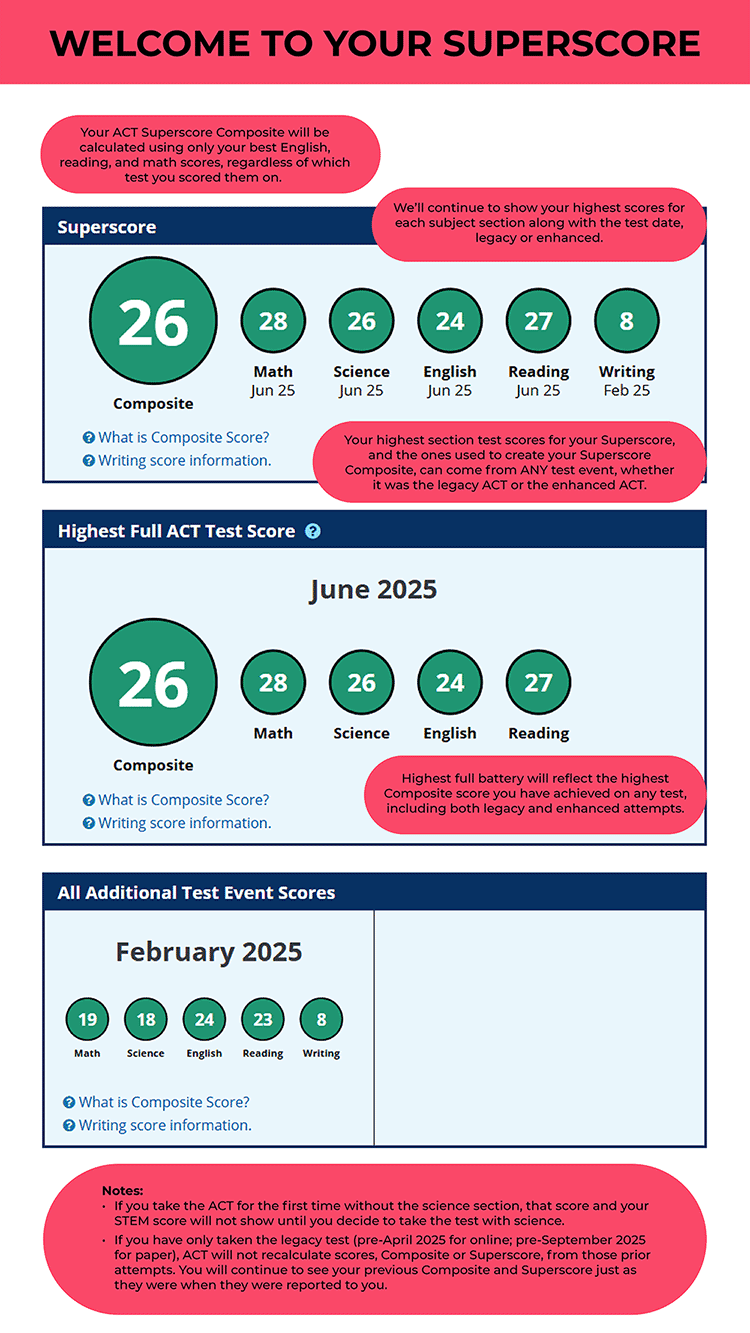As the SAT and ACT continue to duke it out for market share among college hopefuls, the ACT has released its latest and greatest, new and improved version… sort of.
While the digital SAT truly went adaptive, altering the difficulty of questions students get based on how well they do on the initial questions, the ACT essentially took out its easier first half, made itself shorter, and then transferred screenshots of its remaining second half onto the computer.
As you might imagine, there are many pros and cons to this “Enhanced” ACT: Your students who need that confidence boost and self-efficacy from the easier starter questions no longer have that runway, but those who can’t maintain focus on the longer ACT may, in fact, benefit from the shorter test time.
The ACT Science section still exists, but it will likely fall into obscurity like the ACT’s other optional section, the oft-forgotten Writing test. As of this September, ACT composite scores will exclude Science, so most colleges are already treating this “optional” section as unnecessary. There are a few notable exceptions, like Georgetown, Boston University, and the Bright Futures scholarship programs in Florida.

For the tech savvy: A couple of my Applerouth colleagues sat for this new (and improved?) ACT, as soon as it was officially available in a digital format on April 5th, but they found Pearson’s “TestNav” digital interface system to be lacking, in comparison to the College Board’s Blue Book application.
Thankfully, the Enhanced ACT will be offered on paper starting on September 6th, making this digital detriment more of a moot point. Please note that in-school ACTs will still be the longer legacy version of the test until the projected Spring 2026 launch of the Enhanced ACT across school districts nationwide.
In answer to the million-dollar question of “Is the ACT still a speed test?”... yes, but not as much. While the SAT allows 71 seconds per question and the “old” ACT allotted just over 49 seconds, the new Enhanced ACT now allows just over 60 seconds per question: a 22% increase, but still less than the SAT.
With all of these changes, it’s now more crucial than ever to “test out both tests” before committing to one. Some students may score significantly better on one, while others may simply prefer the format of one over the other. Either metric is a valid justification for students to choose their “best” test, as one thing that hasn’t changed is colleges wanting to see a great score on either test.
Read more about Elite Applerouth Tutor Matt Kiesner’s direct experience taking the new digital Enhanced ACT here: I Took the New, Shorter ACT: Here’s What Students Need to Know
ACT Science could be its own topic and article… and it is! Here’s our team’s expert take on it, as well as some helpful advice for students: Should You Take the ACT Science Section in 2025?



.png)

.webp)



.png)